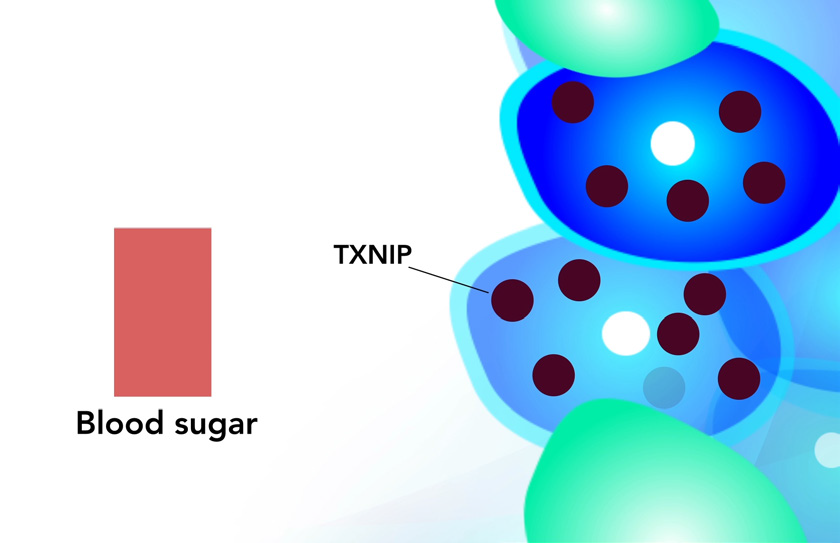Improving Beta Cell Health and Survival
JDRF-funded clinical study to test marketed drug to improve beta cell health and survival in T1D
JDRF recently awarded a $2.1 million grant to Anath Shalev, M.D., director of the University of Alabama’s (UAB) Comprehensive Diabetes Center, to test the impact of a common blood pressure drug called verapamil on the health and survival of beta cells in people recently diagnosed with type 1 diabetes (T1D).
Scientists have shown in the lab that stress on the beta cells, including high blood sugar and exposure to cytokines, causes the beta cells to produce high levels of a protein called TXNIP. TXNIP had previously been studied for its role in regulating cell death in response to stress, but its role in beta cell biology and the development of diabetes was not understood. Dr. Shalev and her team showed that too much TXNIP in the pancreatic beta cells leads to their death, diminishing the body’s ability to produce insulin.
Scientists at UAB have also uncovered that the marketed drug called verapamil, which is used to treat high blood pressure, can lower TXNIP levels in beta cells — to the point that, when mice with established diabetes and high blood sugars were treated with verapamil, the disease was reversed. Their work also suggested that verapamil may have beneficial effects in humans.
The clinical trial is designed to determine if treatment with verapamil will improve the health and survival of the remaining beta cells in people with recent-onset T1D. The study is planned to enroll people within three months of receiving a T1D diagnosis. Participants will be randomized to receive verapamil or a placebo for one year while continuing with their existing insulin therapy. In addition to monitoring safety outcomes, the trial will look for changes in metabolic control and markers of beta cell health and function in the participants.
“We are now at the stage of translating exciting laboratory research into potential new therapies for type 1 diabetes. Finding a therapy to improve beta cell survival and function would put JDRF’s efforts to find a cure on a new trajectory,” said JDRF director of Discovery Research, Andrew Rakeman, Ph.D.
Learn more about JDRF’s restoration research program here.
View a UAB-produced video on the JDRF-funded verapamil study here.
TXNIP is a protein found in beta cells of people with T1D
